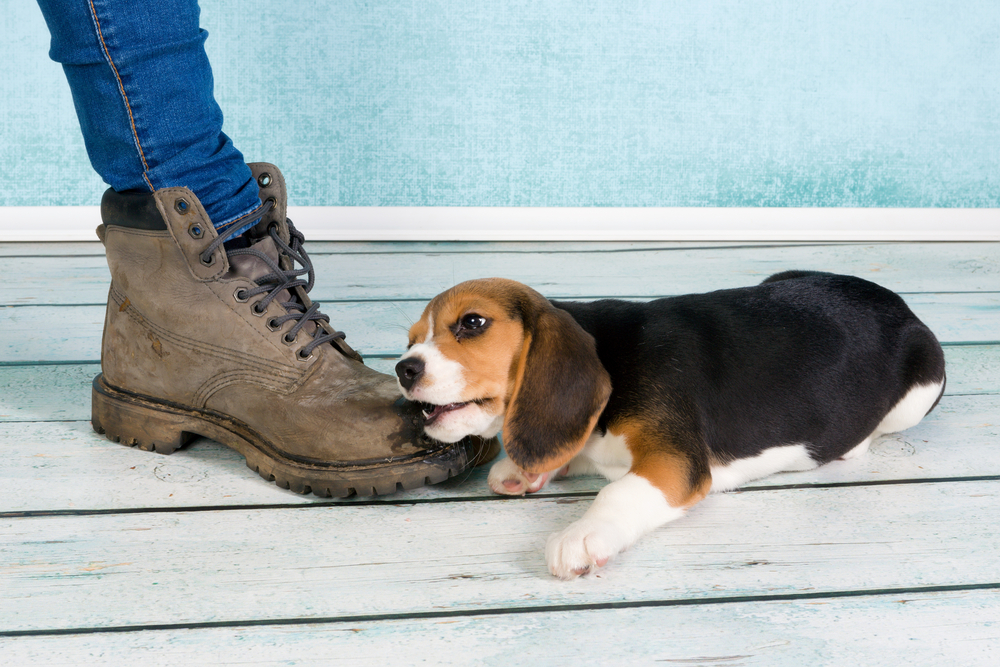So you just got your first puppy… Congratulations! You’re in for an exciting adventure as you get to know your new furry friend. However, it’s not all fun and games right away – First you’ll need to ensure you have all the necessary items your puppy will need to get comfortable in your home. Next, it’s your responsibility to start teaching your pup good behaviors from the start. Training a new puppy can be a challenging task that involves a great deal of patience and a good attitude. Since puppies can exhibit some frustrating behaviors, it’s crucial that you know how to deal with them. If you’re a new pet owner or haven’t trained a puppy in a while, it can be challenging to know what’s normal and what you can expect of them. Here are a few very ordinary things that puppies do and how you can train them to master those behaviors.
Biting and Chewing
If you’ve ever been bitten by a very young pup, you know that their tiny teeth can be quite sharp! They can also do a bit of damage to furniture, shoes, and books if left alone. But chewing on things isn’t really a problem behavior – just as human babies go through a teething period, puppies also are working on bringing their teeth out. Instead of scolding him for chewing, redirect his chewing to proper items like toys and treats. If the puppy starts nibbling your fingers while you’re petting him, say “ouch” or “no” loudly and stop giving him attention. He’ll quickly learn to play nice if he wants to play at all!
Potty Problems
Housebreaking is one of the most challenging parts of raising a puppy. When they’re young, dogs don’t have full control over their bladder, so they can have a few accidents before they really get the hang of it. To start training, make sure to take your puppy outside several times a day. When they do their business, praise them vocally and give them a small treat. They’ll soon associate that with going to the bathroom outside, and they’ll learn to do it regularly. If you can’t take your pup out multiple times a day, crate training is another excellent option for helping them understand when and where it’s appropriate to do their business.
Jumping
If your new furry friend is feeling lonely or left out, he might start jumping up to get your attention. If you allow this, he’ll begin to understand that jumping on people is the best way to get the attention he’s looking for. This can become a problem as the dog gets older and bigger, as well a when he meets new people. To discourage the jumping, refrain from pushing the dog away – this is still a type of attention he seeks. Instead, choose a single-word command like “off” or “down” and turn away from the dog. Do your best to not give your dog hands-on attention, even to push him down. He’ll only register that as the attention he’s looking for and could encourage more bad behaviors like overly rough play or becoming defensive against your family.
Our Dog Trainers at Canine College can Help
Training a puppy can be challenging, and sometimes you need a pro to lend a helping hand. Here at Canine College, we’re the Boston-area experts in dog training and boarding. If you’re concerned about your pup’s behaviors and need some help getting them in check, don’t hesitate to contact us today. We offer a variety of group training courses to help socialize your dog while learning commands, as well as private one-on-one sessions to address specific behaviors. Get in touch with us today to learn more and sign your puppy up!


